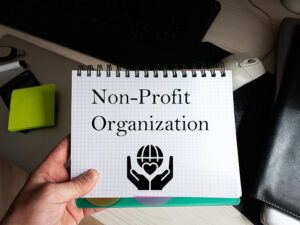Valuing Donations of Private Business Stock
Kirsch CPA Group
Jun 17, 2024

Some business owners may be considering donating corporate stock to charities in 2024. Donations of public stocks are generally easy to value because their prices are listed on public stock exchanges. But valuations of private business interests are typically more complicated. Here’s some guidance on how valuators determine the fair market value (FMV) of closely held business shares and why a formal valuation may be needed to support charitable contribution deductions for these gifts.
Tax Deductions
Qualified charitable donations can help lower your taxable income as well as support worthwhile causes. However, not all donations are tax deductible. Individuals can deduct them only if they itemize. In addition, charitable contributions must be made to qualified organizations.
Depending on the amount of your private stock donation, to claim the tax break you’ll generally have to file Form 8283 and:
- Complete Section A for a donation valued at $5,000 or less,
- Complete Section B for a donation valued at more than $5,000,
- Obtain an independent appraisal within 60 days of the date of the gift (before or after) if the stock is valued at more than $10,000, and
- Attach the appraisal report to your tax return if the shares are deemed to be worth more than $500,000.
Under IRS Revenue Ruling 59-60, FMV represents “The price at which the property would change hands between a willing buyer and a willing seller when the former is not under any compulsion to buy and the latter is not under any compulsion to sell, both parties having reasonable knowledge of relevant facts.” If you put a restriction on the use of the property you donate, the FMV must reflect that restriction.
Business Valuation Report
Valuations for donations worth more than $10,000 must be written. Abbreviated calculations or letter formats may cost less, but they may also raise a red flag with the IRS. Moreover, valuators’ reports typically serve as their direct testimony if a return ends up in U.S. Tax Court.
According to IRS Publication 561, “Determining the Value of Donated Property,” a qualified appraisal must include:
- A detailed description of the donation, including the contribution and valuation dates, as well as the terms of any agreements relating to the use, sale or other disposition of the property,
- The FMV of the donated shares on the contribution date,
- The methods used to value the business interest, such as the cost, market or income approach,
- Any specific data the valuator used to determine FMV, such as financial statements and comparable sales transactions, and
- A statement that the valuation was prepared for income tax purposes.
The report should identify the valuator’s firm and list his or her qualifications, including background, experience, education and memberships in professional valuation associations. Always use a valuator who has earned a professional designation from a recognized appraisal organization and who meets IRS requirements for education and experience. The IRS specifically prohibits do-it-yourself valuations by the donor, the charity or related parties.
Important: You may not take a charitable deduction for business valuation or appraisal fees. At one time, those fees may have qualified as miscellaneous deductions, subject to the 2%-of-adjusted-gross-income limit. However, that break has been suspended through 2025 under the Tax Cuts and Jobs Act.
We Can Help
The IRS closely monitors large charitable contributions claimed on individual returns. Contact Kirsch CPA Group to help ensure your deduction survives IRS scrutiny. Our business valuation pros can guide you through any potential IRS minefields.
Schedule an appointment to learn how we can support you
© Copyright 2024. All rights reserved.
More Resources

About The Author
Kirsch CPA Group is a full service CPA and business advisory firm helping businesses and organizations with accounting,…
Sign Up for Email Updates
Tags
Accounting & Financial News

Update on the First-Year Depreciation Tax Rules for Businesses
The One Big Beautiful Bill Act (OBBBA) included favorable changes to the federal income…

Looking to Boost the Profitability of Your Aftermarket Services? Consider Using Agentic AI
For many manufacturers, aftermarket services increasingly account for a significant share of profits, sometimes exceeding those from…

Enterprise Risk Management Built for Nonprofits
Nonprofit leaders might assume that enterprise risk management (ERM) is something only large, complex organizations need (or…


